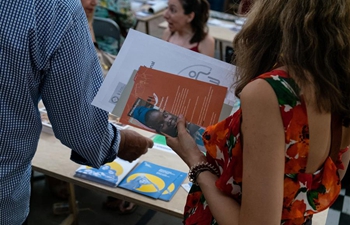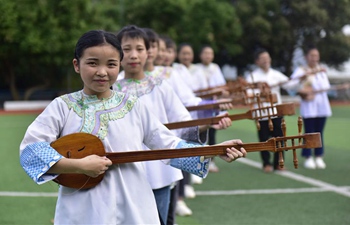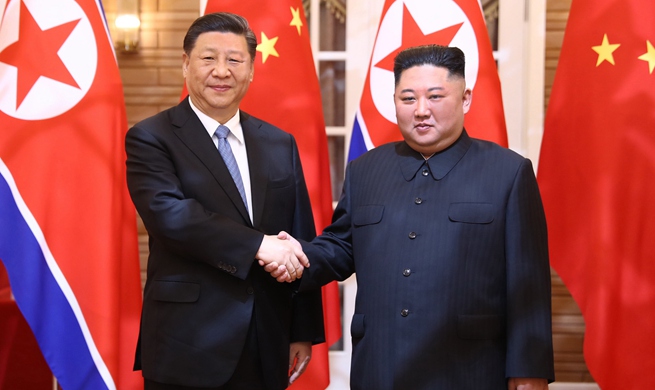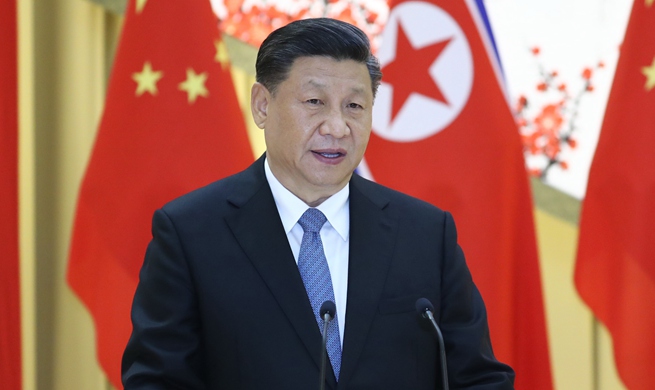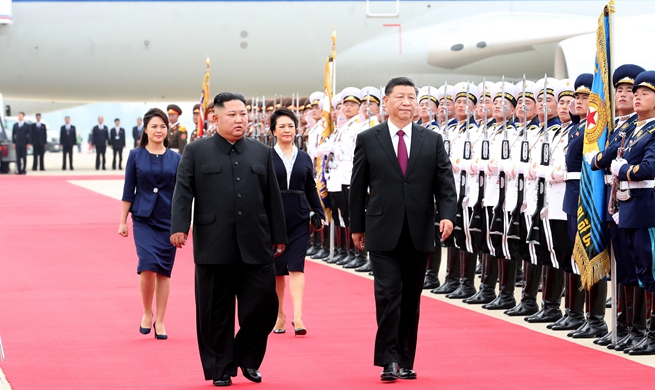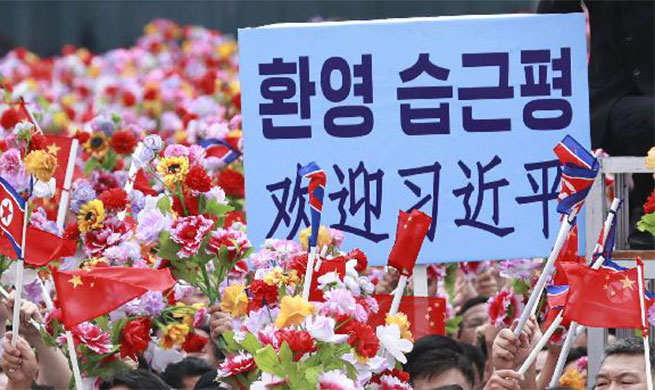by Xinhua writer Bai Xu
CANBERRA, June 21 (Xinhua) -- More than eight decades ago, an 18-year-old Chinese student embarked on a trip to the United States. He studied architecture first at the University of Pennsylvania, then engineering at the Massachusetts Institute of Technology (MIT) and finally Harvard 's Graduate School of Design.
Last month, he passed away, leaving behind a rich legacy as an architect, impressing the whole world with brilliant design works including the John F. Kennedy Presidential Library and Museum, the glass pyramid of the Louvre Museum, and the East Building of the National Gallery of Art in Washington D.C., among others.
His name is Ieoh Ming Pei.
In the words of his biographer Carter Wiseman, Pei won "every award of any consequence in his art." When he won the Pritzker Prize in 1983, the highest honor for a living architect, he established a scholarship to fund Chinese architecture students.
Should he live to see the change today, however, he might be disappointed to see the talents he cared about so much being shut outside the United States, as Chinese students and scholars find the environment there increasingly unwelcoming.
The United States has shortened the duration of visas for Chinese graduate students in certain science, technology, engineering and mathematics fields from five years to one year, and has reportedly canceled visas for many Chinese professors.
In the first quarter of 2019, 13.5 percent of the government-sponsored students had to postpone their plan due to failure to get a visa in time, a sharp increase from 3.2 percent in 2018, according to data released by the China Scholarship Council.
On June 3, China's Ministry of Education warned Chinese students and scholars of the risks of going to study in the United States, citing U.S. visa restrictions and urging them to step up risk assessment and prepare accordingly.
According to the 2018 Open Doors report of the U.S.-based Institute of International Education, more than 363,000 Chinese students were registered in American colleges and universities for the 2017-2018 school year, and they contributed about 14 billion U.S. dollars to the U.S. economy in 2017.
For the world's largest economy, that amount of money might not be so important, but the U.S. move to tighten restrictions on Chinese students and scholars may turn out to dim the prospect of its own future.
Widely known as a country of immigrants, the United States has benefited a lot from talents it attracted globally.
According to U.S. Senator Ron Wyden, nearly a third of the American Nobel laureates were naturalized. "Foreign-born scientists put Americans on the moon. They worked on the Manhattan Project," he was quoted by the Reuters as saying.
Googling Chinese Americans, one could find a long list of key figures of Chinese origin who made contributions in various areas to the United States.
Chen Ning Yang, who studied at the University of Chicago and did research in the Princeton University, received the 1957 Nobel Prize in Physics with another Chinese-American Tsung-Dao Lee for their work on parity non-conservation of weak interaction.
Chien-Shiung Wu was admitted to the University of California 83 years ago at the age of 24. She later worked on the Manhattan Project, a U.S.-led endeavor to create the atomic bomb during the World War II, and helped develop a process in which gaseous diffusion was employed to isolate radioactive uranium isotopes.
Physicist and Nobel laureate Emilio Segre once said: "Wu's will power and devotion to work are reminiscent of Marie Curie, but she is more worldly, elegant, and witty."
Today, China, home to talents like Yang and Wu, is welcoming scholar Li Xiaojiang and his lab staff back, after the neuroscientist and his wife Li Shihua, also a neuroscientist, were fired by Emory University, where they had worked for more than two decades.
"There's a chilling effect," The Scientist quoted Frank Wu as saying. Wu is a law professor at the University of California and president of the Committee of 100, a group of Chinese Americans dedicated to advancing U.S.-China relations.
As many Chinese scholars in the United States get worried about the future of their career, an increasing number of Chinese students are turning to other countries for their overseas study.
After all, with other options, there is no need for them to choose an unwelcoming country, and spend their years in anxiety, uneasiness and even fear.
People from other parts of the world may also be disappointed by Washington's cold-shoulder treatment to talents, and will think twice when they choose institutions for study and research.
No one knows if the tricks will be played again and who will be the next target.





